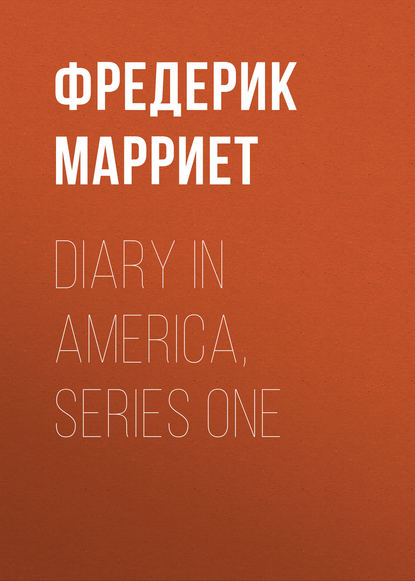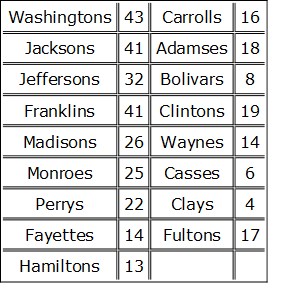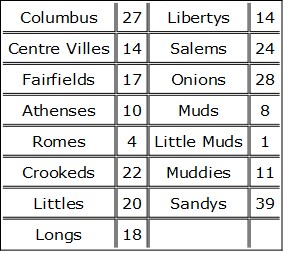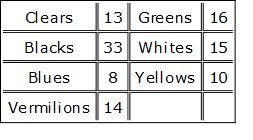 Полная версия
Полная версияПолная версия:
Diary in America, Series One
One of the members of congress once said, “What the honourable gentleman has just asserted I consider as catamount to a denial;”—(catamount is the term given to a panther or lynx.)
“I presume,” replied his opponent, “that the honourable gentleman means tantamount.”
“No, sir, I do not mean tantamount; I am not so ignorant of our language, not to be aware that catamount and tantamount are anonymous.”
The Americans dwell upon their words when they speak—a custom arising, I presume, from their cautious, calculating habits; and they have always more or less of a nasal twang. I once said to a lady, “Why do you drawl out your words in that way?”
“Well,” replied she, “I’d drawl all the way from Maine to Georgia, rather than clip my words as you English people do.”
Many English words are used in a very different sense from that which we attach to them; for instance: a clever person in America means an amiable, good-tempered person, and the Americans make the distinction by saying, I mean English clever.
Our clever is represented by the word smart.
The verb to admire is also used in the East, instead of the verb to like.
“Have you ever been at Paris?”
“No; but I should admire to go.”
A Yankee description of a clever woman:—
“Well, now, she’ll walk right into you, and talk to you like a book;” or, as I have heard them say, “she’ll talk you out of sight.”
The word ugly is used for cross, ill-tempered. “I did feel so ugly when he said that.”
Bad is used in an odd sense: it is employed for awkward, uncomfortable: sorry:—
“I did feel so bad when I read that”—awkward.
“I have felt quite bad about it ever since”—uncomfortable.
“She was so bad, I thought she would cry”—sorry.
And as bad is tantamount to not good, I have heard a lady say, “I don’t feel at all good this morning.”
Mean is occasionally used for ashamed.
“I never felt so mean in my life.”
The word handsome is oddly used.
“We reckon this very handsome scenery, sir,” said an American to me, pointing to the landscape.
“I consider him very truthful,” is another expression.
“He stimulates too much.”
“He dissipates awfully.”
And they are very fond of using the noun as a verb, as—“I suspicion that’s a fact.”
“I opinion quite the contrary.”
The word considerable is in considerable demand in the United States. In a work in which the letters of the party had been given to the public as specimens of good style and polite literature, it is used as follows:—
“My dear sister, I have taken up the pen early this morning, as I intend to write considerable.” (Life and Remains of Charles Pont.)
The word great is oddly used for fine, splendid.
“She’s the greatest gal in the whole Union.”
But there is one word which we must surrender up to the Americans as their very own, as the children say. I will quote a passage from one of their papers:—
“The editor of the Philadelphia Gazette is wrong in calling absquatiated a Kentucky phrase (he may well say phrase instead of word.) It may prevail there, but its origin was in South Carolina, where it was a few years since regularly derived from the Latin, as we can prove from undoubted authority. By the way, there is a little corruption is the word as the Gazette uses it, absquatalized is the true reading.”
Certainly a word worth quarrelling about!
“Are you cold, miss?” said I to a young lady, who pulled the shawl closer over her shoulders.
“Some,” was the reply.
The English what? implying that you did not hear what was said to you, is changed in America to the word how?
“I reckon,” “I calculate,” “I guess,” are all used as the common English phrase, “I suppose.” Each term is said to be peculiar to different states, but I found them used everywhere, one as often as the other. I opine, is not so common.
A specimen of Yankee dialect and conversation:—
“Well now, I’ll tell you—you know Marble Head?”
“Guess I do.”
“Well, then, you know Sally Hackett.”
“No, indeed.”
“Not know Sally Hackett? Why she lives at Marble Head.”
“Guess I don’t.”
“You don’t mean to say that?”
“Yes, indeed.”
“And you really don’t know Sally Hackett?”
“No, indeed.”
“I guess you’ve heard talk of her?”
“No, indeed.”
“Well, that’s considerable odd. Now, I’ll tell you—Ephraim Bagg, he that has the farm three miles from Marble Head—just as—but now, are you sure you don’t know Sally Hackett?”
“No, indeed.”
“Well, he’s a pretty substantial man, and no mistake. He has got a heart as big as an ox, and everything else in proportion, I’ve a notion. He loves Sal, the worst kind; and if she gets up there, she’ll think she has got to Palestine (Paradise); ain’t she a screamer? I were thinking of Sal myself, for I feel lonesome, and when I am thrown into my store promiscuous alone, I can tell you I have the blues, the worst kind, no mistake—I can tell you that. I always feel a kind o’ queer when I sees Sal, but when I meet any of the other gals I am as calm and cool as the milky way,” etcetera, etcetera.
The verb “to fix” is universal. It means to do anything.
“Shall I fix your coat or your breakfast first?” That is—“Shall I brush your coat, or get ready your breakfast first!”
Right away, for immediately or at once, is very general.
“Shall I fix it right away?”—i.e. “Shall I do it immediately?”
In the West, when you stop at an inn, they say—
“What will you have? Brown meal and common doings, or white wheat and chicken fixings;”—that is, “Will you have pork and brown bread, or white bread and fried chicken?”
Also, “Will you have a feed or a check?”—A dinner, or a luncheon?
In full blast—something in the extreme.
“When she came to meeting, with her yellow hat and feathers, wasn’t she in fall blast?”
But for more specimens of genuine Yankee, I must refer the reader to Sam Slick and Major Downing, and shall now proceed to some farther peculiarities.
There are two syllables—um, hu—which are very generally used by the Americans as a sort of reply, intimating that they are attentive, and that the party may proceed with his narrative; but, by inflection and intonation, these two syllables are made to express dissent or assent, surprise, disdain, and (like Lord Burleigh’s nod in the play) a great deal more. The reason why these two syllables have been selected is, that they can be pronounced without the trouble of opening your mouth, and you may be in a state of listlessness and repose while others talk. I myself found them very convenient at times, and gradually got into the habit of using them.
The Americans are very local in their phrases, and borrow their similes very much from the nature of their occupations and pursuits. If you ask a Virginian or Kentuckian where he was born, he will invariably tell you that he was raised in such a county—the term applied to horses, and, in breeding states, to men also.
When a man is tipsy (spirits being made from grain), they generally say he is corned.
In the West, where steam-navigation is so abundant, when they ask you to drink they say, “Stranger, will you take in wood?”—the vessels taking in wood as fuel to keep the steam up, and the person taking in spirits to keep his steam up.
The roads in the country being cut through woods, and the stumps of the trees left standing, the carriages are often brought up by them. Hence the expression of, “Well, I am stumped this time.”
I heard a young man, a farmer in Vermont, say, when talking about another having gained the heart of a pretty girl, “Well, how he contrived to fork into her young affections, I can’t tell; but I’ve a mind to put my whole team on, and see if I can’t run him off the road.”
The old phrase of “straining at a gnat, and swallowing a camel,” is, in the Eastern states, rendered “straining at a gate, and swallowing a saw-mill.”
To strike means to attack. “The Indians have struck on the frontier,”—“A rattle-snake struck at me.”
To make tracks—to walk away. “Well, now, I shall make tracks;”—from foot-tracks in the snow.
Clear out, quit, and put—all mean “be off.” “Captain, now, you hush or put”—that is, “Either hold your tongue, or be off.” Also, “Will you shut, mister?”—i.e. will you shut your mouth? i.e. hold your tongue?
“Curl up”—to be angry—from the panther and other animals when angry raising their hair. “Rise my dandee up,” from the human hair; and a nasty idea. “Wrathy” is another common expression. Also, “Savage as a meat-axe.”
Here are two real American words:—
“Sloping”—for slinking away.
“Splunging,” like a porpoise.
The word “enthusiasm,” in the south, is changed to “entuzzy-muzzy.”
In the Western states, where the racoon is plentiful, they use the abbreviation ’coon when speaking of people. When at New York, I went into a hair-dresser’s shop to have my hair cut; there were two young men front the west—one under the barber’s hands, the other standing by him.
“I say,” said the one who was having his hair cut, “I hear Captain is in the country.”
“Yes;” replied the other, “so they say; I should like to see the ’coon.”
“I’m a gone ’coon” implies “I am distressed—or ruined—or lost.” I once asked the origin of this expression, and was very gravely told as follows:—
“There is a Captain Martin Scott (already mentioned in the Diary) in the United States Army who is a remarkable shot with a rifle. He was raised, I believe, in Vermont. His fame was so considerable through the state, that even the animals were aware of it. He went out one morning with his rifle, and spying a racoon upon the upper branches of a high tree, brought his gun up to his shoulder; when the racoon perceiving it, raised his paw for a parley. ‘I beg your pardon, mister,’ said the racoon, very politely; ‘but may I ask you if your name is Scott?’—‘Yes,’ replied the captain.—‘Martin Scott?’ continued the racoon—‘Yes,’ replied the captain—‘Captain Martin Scott?’ still continued the animal.—‘Yes,’ replied the captain, ‘Captain Martin Scott?’—‘Oh! then,’ says the animal, ‘I may just as well come down, for I’m a gone ’coon.’”
But one of the strangest perversions of the meaning of a word which I ever heard of is in Kentucky, where sometimes the word nasty is used for nice. For instance: at a rustic dance in that state a Kentuckian said to an acquaintance of mine, in reply to his asking the name of a very fine girl, “That’s my sister, stranger; and I flatter myself that she shows the nastiest ankle in all Kentuck”—Unde derivatur, from the constant rifle-practice in that state, a good shot or a pretty shot is termed also a nasty shot, because it would make a nasty wound: ergo, a nice or pretty ankle becomes a nasty one.
The term for all baggage, especially in the south or west, is “plunder.” This has been derived from the buccaneers, who for so long a time infested the bayores and creeks near the mouth of the Mississippi, and whose luggage was probably very correctly so designated.
I must not omit a specimen of American criticism.
“Well, Abel, what d’ye think of our native genus, Mister Forrest?”
“Well, I don’t go much to theatricals, that’s a fact; but I do think he piled the agony up a little too high in that last scene.”
The gamblers on the Mississippi use a very refined phrase for “cheating”—“playing the advantages over him.”
But, as may be supposed, the principal terms used are those which are borrowed from trade and commerce.
The rest, or remainder, is usually termed the balance.
“Put some of those apples into a dish, and the balance into the storeroom.”
When a person has made a mistake, or is out in his calculation, they say, “You missed a figure that time.”
In a skirmish last war, the fire from the British was very severe, and the men in the American ranks were falling fast, when one of the soldiers stepped up to the commanding officer and said, “Colonel, don’t you think that we might compromise this affair?” “Well, I reckon I should have no objection to submit it to arbitration myself,” replied the colonel.
Even the thieves must be commercial in their ideas. One rogue meeting another, asked him what he had done that morning; “Not much,” was the reply, “I’ve only realised this umbrella.”
This reminds me of a conversation between a man and his wife, which was overheard by the party who repeated it to me. It appears that the lady was economically inclined, and in cutting out some shirts for her husband, resolved that they should not descend much lower than his hip; as thereby so much linen would be saved. The husband expostulated, but in vain. She pointed out to him that it would improve his figure, and make his nether garments set much better; in a word, that long shirt-tails were quite unnecessary; and she wound up her arguments by observing that linen was a very expensive article, and that she could not see what on earth was the reason that people should stuff so much capital into their pantaloons.
There is sometimes in the American metaphors, an energy which is very remarkable.
“Well, I reckon, that from his teeth to his toe-nail, there’s not a human of a more conquering nature than General Jackson.”
One gentleman said to me, “I wish I had all hell boiled down to a pint, just to pour down your throat.”
It is a great pity that the Americans have not adhered more to the Indian names, which are euphonous, and very often musical; but, so far from it, they appear to have had a pleasure in dismissing them altogether. There is a river running into Lake Champlain, near Burlington, formerly called by the Indians the Winooski; but this name has been superseded by the settlers, who, by way of improvement, have designated it the Onion river. The Americans have ransacked scripture, and ancient and modern history, to supply themselves with names, yet, notwithstanding, there appears to be a strange lack of taste in their selection. On the route to Lake Ontario you pass towns with such names as Manlius, Sempronius, Titus, Cato, and then you come to Butternuts. Looking over the catalogue of cities, towns, villages, rivers, and creeks in the different states in the Union, I find the following repetitions:—
Of towns, etcetera, named after distinguished individuals, there are:—

Of other towns, etcetera, there are:—

In colours they have:—

Named after trees:—

After animals:—

After birds, etcetera:—

The consequence of these repetitions is, that if you do not put the name of the state, and often of the county in the state in which the town you refer to may be, your letter may journey all over the Union, and perhaps, after all, never arrive at its place of destination.
The states have already accommodated each other with nicknames, as per example:—

The names of persons are also very strange; and some of them are, at all events, obsolete in England, even if they ever existed there. Many of them are said to be French or Dutch names Americanised. But they appear still more odd to us from the high sounding Christian names prefixed to them; as, for instance: Philo Doolittle, Populorum Hightower, Preserved Fish, Asa Peabody, Alonzo Lilly, Alceus Wolf, etcetera. I was told by a gentleman that Doolittle was originally from the French Do l’hotel; Peabody from Pibaudiere; Bunker from Bon Coeur; that Mr Ezekial Bumpus is a descendant of Monsieur Bon Pas, etcetera, all which is very possible.
Every one who is acquainted with Washington Irving must know that, being very sensitive himself, he is one of the last men in the world to do anything to annoy another. In his selection of names for his writings, he was cautious in avoiding such as might be known; so that, when he called his old schoolmaster Ichabod Crane, he thought himself safe from the risk of giving offence. Shortly afterward a friend of his called upon him, accompanied by a stranger whom he introduced as Major Crane; Irving started at the name; “Major Ichabod Crane,” continued his friend, much to the horror of Washington Irving.
I was told that a merchant went down to New Orleans with one Christian name, and came back, after a lapse of years, with another. His name was John Flint. The French at New Orleans translated his surname, and called him Pierre Fusée—on his return the Pierre stuck to him, and rendered into English as Peter, and he was called Peter Flint ever afterward.
People may change their names in the United States by application to Congress. They have a story hardly worth relating, although considered a good one in America, having been told me by a member of congress. A Mr Whitepimple, having risen in the world, was persuaded by his wife to change his name, and applied for permission accordingly. The clerk of the office inquired of him what other name he would have, and he being very indifferent about it himself, replied carelessly, as he walked away, “Oh, anything;” whereupon the clerk enrolled him as Mr Thing. Time passed on, and he had a numerous family, who found the new name not much more agreeable than the old one, for there was Miss Sally Thing, Miss Dolly Thing, the old Things, and all the little Things; and worst of all, the eldest son being christened Robert, went by the name of Thingum Bob.
There were, and I believe still are, two lawyers in partnership in New York, with the peculiarly happy names of Catchem and Chetum. People laughed at seeing these two names in juxtaposition over the door; so the lawyers thought it advisable to separate them by the insertion of their Christian names. Mr Catchem’s Christian name was Isaac, Mr Chetum’s Uriah. A new board was ordered, but when sent to the painter, it was found to be too short to admit the Christian names at full length. The painter, therefore, put in only the initials before the surnames, which made the matter still worse than before, for there now appeared—
“I Catchem and U Chetum.”I cannot conclude this chapter without adverting to one or two points peculiar to the Americans. They wish, in everything, to improve upon the Old Country, as they call us, and affect to be excessively refined in their language and ideas: but they forget that very often in the covering, and the covering only, consists the indecency; and that, to use the old aphorism—“Very nice people are people with very nasty ideas.”
They object to everything nude in statuary. When I was at the house of Governor Everett, at Boston, I observed a fine cast of the Apollo Belvidere; but in compliance with general opinion, it was hung with drapery, although Governor Everett himself is a gentleman of refined mind and high classical attainments, and quite above such ridiculous sensitiveness. In language it is the same thing. There are certain words which are never used in America, but an absurd substitute is employed. I cannot particularise them after this preface, lest I should be accused of indelicacy myself. I may, however, state one little circumstance which will fully prove the correctness of what I say.
When at Niagara Falls I was escorting a young lady with whom I was on friendly terms. She had been standing on a piece of rock, the better to view the scene, when she slipped down, and was evidently hurt by the fall: she had, in fact, grazed her shin. As she limped a little in walking home, I said, “Did you hurt your leg much?” She turned from me, evidently much shocked, or much offended,—and not being aware that I had committed any very heinous offence, I begged to know what was the reason of her displeasure. After some hesitation, she said that as she knew me well, she would tell me that the word leg was never mentioned before ladies. I apologised for my want of refinement, which was attributable to having been accustomed only to English society; and added, that as such articles must occasionally be referred to, even in the most polite circles in America, perhaps she would inform me by what name I might mention them without shocking the company. Her reply was, that the word limb was used; “nay,” continued she, “I am not so particular as some people are, for I know those who always say limb of a table, or limb of a piano-forte.”
There the conversation dropped; but a few months afterwards I was obliged to acknowledge that the young lady was correct when she asserted that some people were more particular than even she was.
I was requested by a lady to escort her to a seminary for young ladies, and on being ushered into the reception-room, conceive my astonishment at beholding a square piano-forte with four limbs. However, that the ladies who visited their daughters might feel in its full force the extreme delicacy (see note at end of chapter) of the mistress of the establishment, and her care to preserve in their utmost purity the ideas of the young ladies under her charge, she had dressed all these four limbs in modest little trousers, with frills at the bottom of them!
“An English lady, who had long kept a fashionable boarding-school in one of the Atlantic cities, told me that one of her earliest cares with every new-comer, was to endeavour to substitute real delicacy for that affected precision of manner. Among many anecdotes, she told me of a young lady about fourteen, who, on entering the receiving-room, where she only expected to see a lady who had inquired for her, and finding a young man with her, put her hands before her eyes and ran out of the room again, screaming ‘A man, a man, a man!’ On another occasion, one of the young ladies in going up stairs to the drawing-room, unfortunately met a boy of fourteen coming down, and her feelings were so violently agitated, that she stopped, panting and sobbing, nor would she pass on till the boy had swung himself up on the upper bannisters, to leave the passage free.”—Mrs Trollope’s Domestic Manners of the Americans.
Volume Three—Chapter Two
Remarks—CreditIn the state of New York they have abolished imprisonment for debt; this abolition however, only holds good between the citizens of that state, as no one state in the Union can interfere with the rights of another. A stranger, therefore, can imprison a New Yorker, and a New Yorker can imprison a stranger, but the citizens of New York cannot incarcerate one another. Now although the unprincipled may, and do occasionally take advantage of this enactment, yet the effects of it are generally good, as character becomes more valuable. Without character, there will be no credit—and without credit no commercial man can rise in this city. I was once in a store where the widow who kept it complained to me that a person who owed her a considerable sum of money would not pay her, and aware that she had no redress, I asked her how she would obtain her money. Her reply was—“Oh, I shall eventually get my money, for I will shame him out of it by exposure.”
The Americans, probably from being such great speculators, and aware of the uncertainty attending their commerce, are very lenient towards debtors. If a man proves that he cannot pay, he is seldom interfered with, but allowed to recommence business. This is not only Christians like, but wise. A man thrown into prison is not likely to find the means of paying his debts; but if allowed his liberty and the means of earning a subsistence, he may eventually be more fortunate, and the creditors have a chance of being ultimately paid. This, to my knowledge, has often been the case after the release had been signed, and the creditors had no farther legal claim upon the bankrupt. England has not yet made up her mind to the abolition of imprisonment for debt, but from what I have learnt in this city, I have no hesitation in saying, that it would work well for the morals of the community, and that more debts would eventually be paid, than are paid under the present system. Another circumstance which requires to be pointed out when we would examine into the character of the New York commercial community, is, the difference between their bankrupt-laws and those of England. Here there is no law to compel a bankrupt to produce his books; every man may be his own assignee, and has the power of giving preference to one creditor over another; that is to say, he may repay those who have lent him money in the hope of preventing his becoming a bankrupt, and all other debts of a like description. He may also turn over his affairs to an assignee of his own selection, who then pays the debts as he pleases. A bankrupt is also permitted to collect his own debts.



